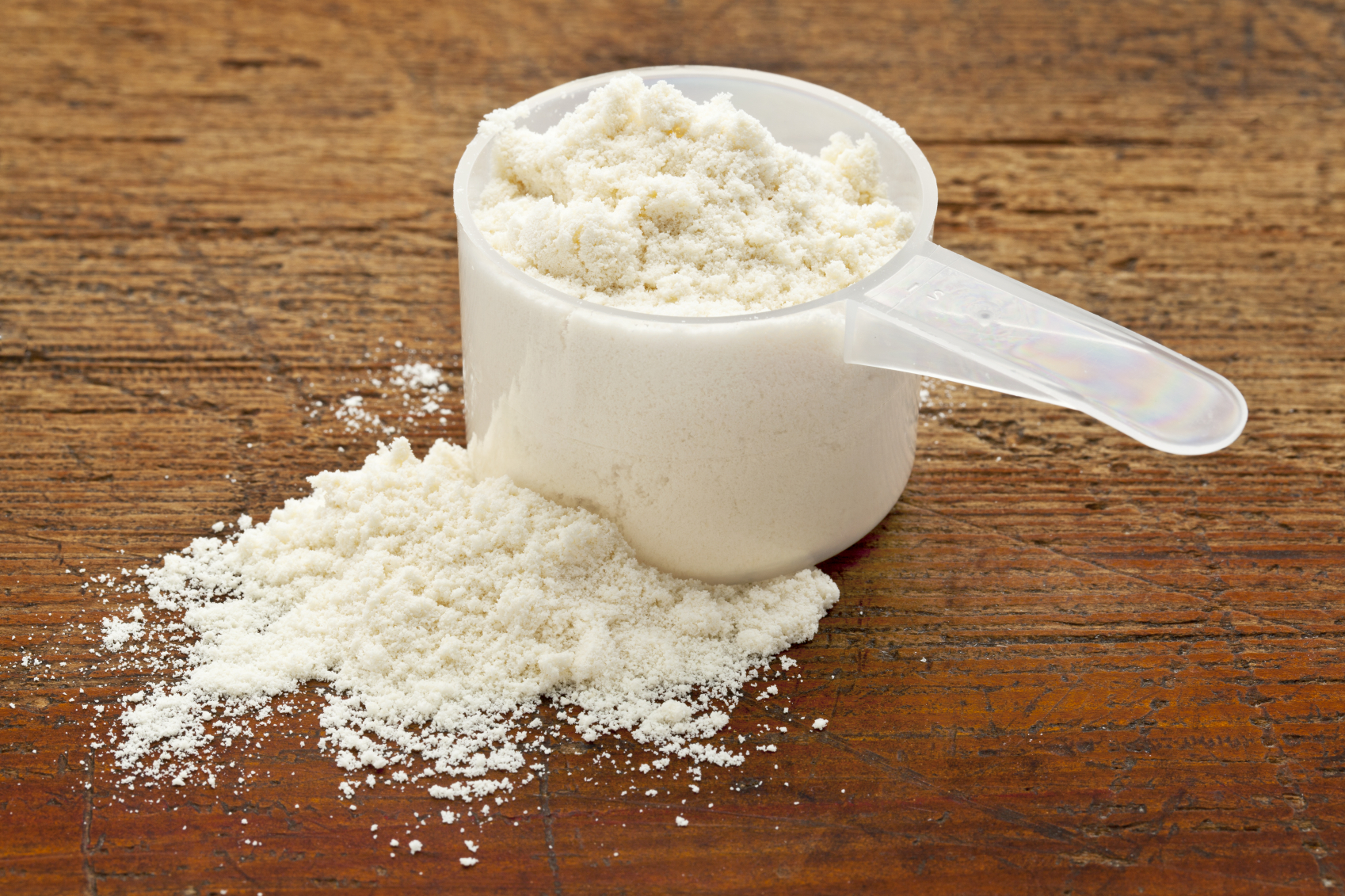Whey Protein Powder
Product description
Whey Protein Powder: Overview and Benefits
What is Whey Protein? Whey protein is a high-quality protein derived from milk. It is one of the two main proteins found in milk, the other being casein. Whey protein is a complete protein, meaning it contains all nine essential amino acids that the body cannot produce on its own. It is fast-digesting, easily absorbed by the body, and is highly bioavailable, making it an ideal supplement for muscle recovery, growth, and overall health. Whey protein powder is produced by processing the liquid portion of milk (the whey) that separates during cheese production. It is then filtered, dried, and turned into a fine powder, which can be consumed as a supplement in shakes, smoothies, or added to foods.
Types of Whey Protein Powder
There are three main types of whey protein, each with different processing methods and protein content:
- Whey Protein Concentrate (WPC): Contains a lower percentage of protein (typically 70–80%) and more fat and carbohydrates. It is the most affordable form of whey protein.
- Whey Protein Isolate (WPI): More processed to remove most of the fat and carbohydrates, leaving a higher percentage of protein (typically 90% or more). It is often preferred by those seeking a leaner protein source.
- Whey Protein Hydrolysate (WPH): Pre-digested and broken down into smaller peptides for faster absorption. This form is often used in medical protein supplements or infant formulas, as it may be easier to digest.
Importance and Benefits of Whey Protein Powder as a Supplement
Supports Muscle Growth and Repair: Whey protein is one of the most popular supplements among athletes and bodybuilders due to its ability to support muscle growth and repair. Whey protein is rich in branched-chain amino acids (BCAAs), especially leucine, which plays a key role in stimulating muscle protein synthesis—the process by which the body builds new muscle tissue. Consuming whey protein after exercise helps repair muscle damage, reduce muscle soreness, and promote the growth of lean muscle mass.
Promotes Weight Loss and Fat Loss: Whey protein can help with weight management by promoting feelings of fullness, reducing appetite, and supporting fat loss. Protein is known to increase satiety, helping you feel full for longer periods, which may reduce overall calorie intake. Additionally, whey protein increases the thermic effect of food (TEF), meaning the body burns more calories during the digestion of protein. Studies have shown that replacing high-calorie snacks with a protein shake can help promote fat loss, especially when combined with exercise.
Helps with Recovery After Exercise: After strenuous physical activity, the muscles are in a catabolic state, meaning they are breaking down and need nutrients for repair. Whey protein provides a fast-digesting source of high-quality protein that is absorbed quickly by the muscles, promoting faster recovery. It also helps replenish glycogen stores in muscles and liver when combined with carbohydrates, reducing the likelihood of muscle soreness (delayed onset muscle soreness or DOMS) and supporting optimal recovery.
Enhances Immune Function: Whey protein contains immunoglobulins and lactoferrin, which support the immune system by boosting the production of antibodies and helping to protect the body from infections. Additionally, whey protein is a good source of cysteine, an amino acid that helps the body produce glutathione, a powerful antioxidant that plays a crucial role in immune function and detoxification. Regular consumption of whey protein may help strengthen the immune system, especially during times of intense physical exertion or stress.
Improves Bone Health: While calcium is the most well-known nutrient for bone health, protein also plays an essential role in maintaining strong bones. Whey protein is a good source of calcium, and studies have suggested that higher protein intake can improve bone mineral density and help prevent osteoporosis. It is particularly beneficial when combined with weight-bearing exercises, as it may support both bone strength and muscle mass, which are important for preventing fractures in older adults.
Supports Healthy Blood Sugar Levels: Whey protein can help regulate blood sugar levels, especially when consumed with carbohydrate-rich meals. It has been shown to reduce post-meal blood sugar spikes by stimulating insulin secretion and improving insulin sensitivity. By reducing insulin resistance and promoting more stable blood sugar levels, whey protein may help manage or prevent type 2 diabetes. For people with insulin resistance or metabolic syndrome, incorporating whey protein into meals may support healthy glucose metabolism.
Promotes Heart Health: Whey protein may have several benefits for cardiovascular health. It has been shown to reduce blood pressure in individuals with hypertension, which is one of the major risk factors for heart disease. Whey protein may help reduce LDL cholesterol (bad cholesterol) levels and increase HDL cholesterol (good cholesterol). The peptides found in whey protein also have antioxidant properties, which help protect the cardiovascular system from oxidative damage and reduce the risk of plaque buildup in the arteries, which can lead to atherosclerosis.
Boosts Antioxidant Levels: Whey protein is a source of cysteine, which is necessary for the production of glutathione, one of the body’s most powerful antioxidants. Glutathione plays a critical role in neutralizing free radicals and preventing oxidative stress, which is linked to the development of chronic diseases and aging. By increasing glutathione levels, whey protein helps to protect cells and tissues from damage, supports liver detoxification, and reduces inflammation throughout the body.
Supports Mental Health and Cognitive Function: Some studies suggest that whey protein may support brain health and mental clarity due to its ability to increase levels of certain neurotransmitters. The amino acids in whey protein, such as tryptophan, play a role in the production of serotonin, a neurotransmitter that helps regulate mood, sleep, and appetite. By supporting serotonin production, whey protein may help improve mood, reduce symptoms of depression and anxiety, and contribute to better mental well-being.
Convenient and Easy to Consume: One of the key benefits of whey protein powder is its convenience. It is an easy way to increase protein intake, especially for people who have high protein needs (e.g., athletes, bodybuilders, or older adults). It can be quickly mixed into shakes, smoothies, or baked goods and is an efficient way to support muscle maintenance and recovery throughout the day. It is also a quick and easy source of nutrition when you’re on the go.


